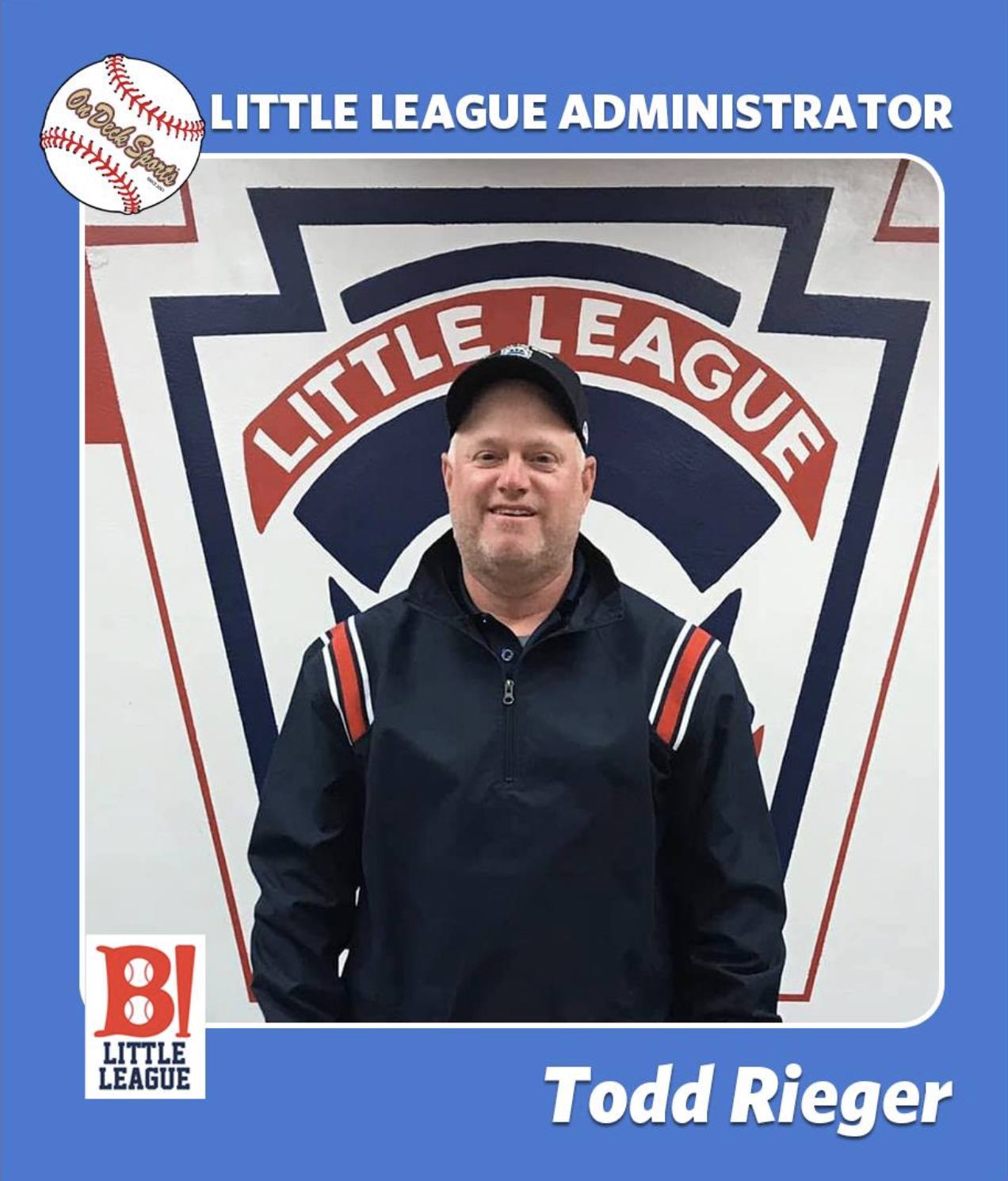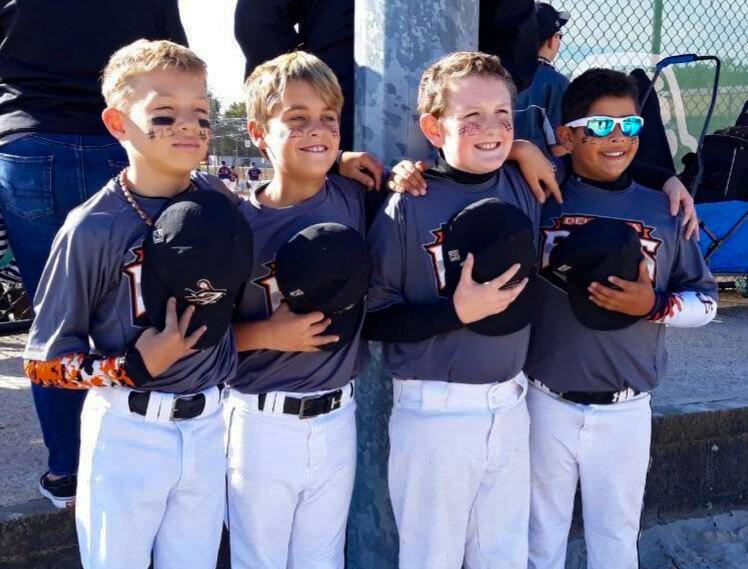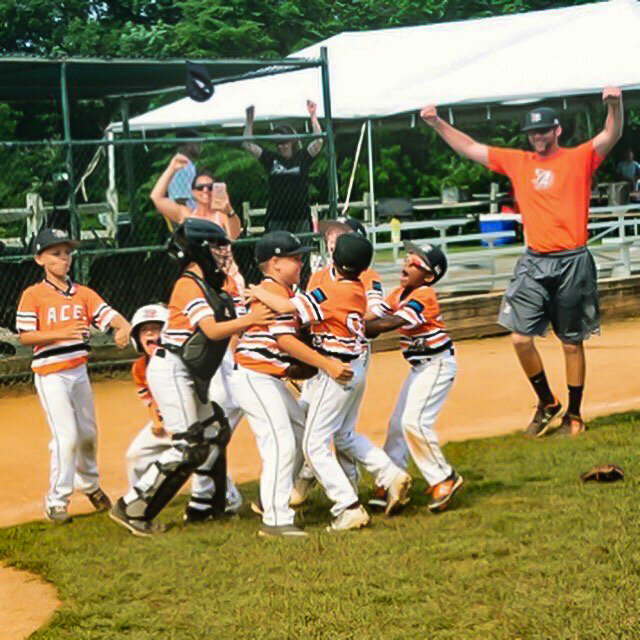HiCast Sports user, grandfather, and attorney by day, Joe DaPore from Charleston, South Carolina coaches for the Land Sharks 9U team for Barrier Islands Little League, one of newest ballparks to join the HiCast Sports Network this year. Joe was a pitcher and first baseman in high school, and continued his love for the game when he started coaching young ballplayers 40 years ago. When his older grandson, James Saltmarsh, begin playing T-Ball at age five, he signed on as an assistant coach for his team at Barrier Islands Little League.
Grandfather and Coach Joe DaPore with grandson James; Photo provided by Joe DaPore
Barrier Islands Little League, started in 1955, was one of just a few Little League organizations in the state of South Carolina to establish return-to-play guidelines and resume play in June due to the Covid-19, thanks in part to leadership from Todd Rieger, former president of the organization and current board member. Over the past six years Barrier Islands Little League has grown from 100 players to 450, and continues to expand as the organization added a girls’ softball league for ages 6-16 this year.
Joe’s grandson, James, was a member of the All Star team that won the 9U division. During regular season, on July 23, Joe was coaching third base and waiting on his grandson to bat. They had two runners on base and two outs, so the pressure was on.
“James was a little late getting to the plate. Our Little League rules dictate if the batter doesn’t get into the box to bat in a timely manner the pitcher can start throwing. So when James got to the plate after a delay because he couldn’t find his bat, he already had two strikes on him. When he finally stepped into the box, he promptly hit one to the fence scoring two runs. It was a fun moment in a summer filled with Covid worries.”
James Saltmarsh’s 2-run triple for Land Sharks 9U at Barrier Islands Little League
On Joe’s use of HiCast at Barrier Islands Little League, he shares, “I had never heard of it. I didn’t sign up for a while, but I’ve really enjoyed it. It captures moments that are important to grandparents, parents and players.”
Photo provided by Barrier Islands Little League
Todd Rieger, former President and current Umpire-in-Chief for Barrier Islands Little League spearheaded the effort to bring in the HiCast Sports Network to Johns Island in South Carolina this past spring. Todd’s been involved with the organization for the past six years and has served all roles “except team mom, the hardest role of all!” Todd laughs. This 2020-2021 year, he’ll focus on recruiting and training umpires and creating a youth umpire program.
Coach Todd shares, “HiCast has been a huge success at Barrier Islands Little League. We only have 2 fields but our parents and grandparents love watching their kids. Not only for games, but for practices. It allows you to check in on your players when you can’t be there, plus with Covid it offers families the opportunity to still be involved with the games without the risk of getting sick. We have also used it for our umpiring training and we can't wait to ramp things back up this Spring once we are done with Fall Ball.”
HiCast Sports Network is proud to welcome Barrier Islands Little League, their young athletes, families and fans to our HiCast community.
Photo provided by Barrier Islands Little League
Photo provided by Barrier Islands Little League










